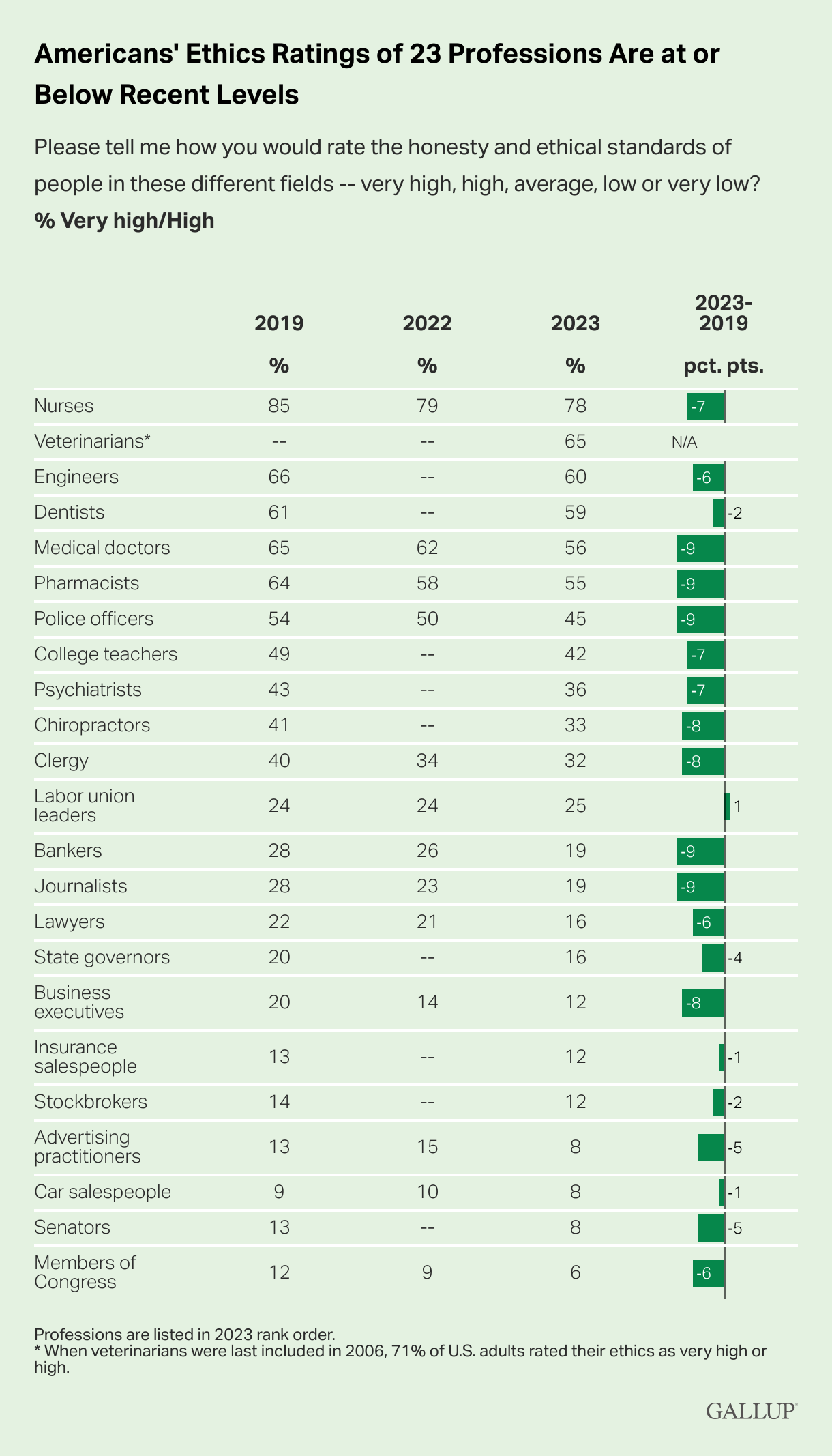What Eroding Trust Means for Education
The results of Gallup’s 2023 Honesty and Ethics poll continue a trend toward ever less public confidence in the integrity of those practicing the professions. Some professions, such as physicians and journalists, show a nearly 10% drop in confidence since 2019. While elementary and secondary educators are not tracked in the Gallup survey, college teachers declined by 7% since 2019.
The decline in public trust in professions, including education, poses significant challenges and implications for education professionals. This erosion of trust can diminish respect for educators' expertise and authority. In an environment where skepticism towards professional judgment is increasing, faculty and administrators may find it harder to implement educational strategies and policies effectively. Parents and students might question or resist educational methods and curriculum choices, believing that their personal research or opinions are as valid as professional expertise.
Declining trust also impacts the collaboration between educators and the community they serve. Education, being inherently collaborative, relies on strong partnerships between schools, parents, and the wider community. A lack of trust can weaken these essential bonds, making building consensus around strategic initiatives more challenging. This situation can create an environment where short-term, reactive solutions are favored over long-term strategic planning, further exacerbating educational challenges.

